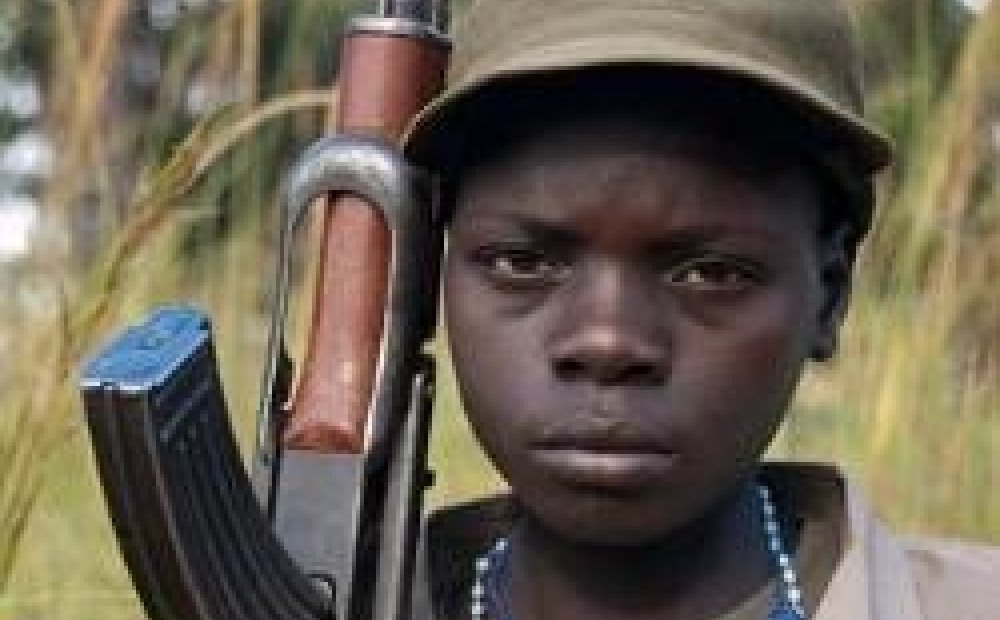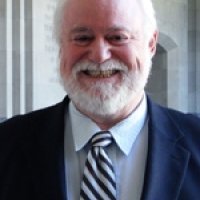Countering the Lord’s Resistance Army: A Civilian View from the Field

Panelists
- Jason Lewis-Berry, Representative for LRA Issues (outgoing), Bureau of Conflict and Stabilization Operations, US State Department
- Paul Ronan, Co-Founder and Director of Advocacy, Resolve
Discussants
- Father Benoit Kinalegu, Priest and the President of the Dungu-Doruma Diocesan Commission for Justice and Peace, Democratic Republic of the Congo
- Sister Angelique Namaika, Dynamic Women for Peace, Democratic Republic of the Congo
Moderator
- Steve McDonald, Consulting Director, Africa Program and the Project on Leadership and Building State Capacity, The Wilson Center
On June 20, the Project on Leadership and Building State Capacity, in collaboration with the Africa Program, convened a meeting of practitioners and experts from both the public and private sectors to engage in dialogue surrounding the recent activities undertaken by the international community to counter the Lord’s Resistance Army (LRA). The discussion focused on the complexity of the issue and the need for a multi-sectoral and integrated solution that draws on different approaches and collaboration from local leaders and the international community.
Steve McDonald, the Wilson Center host, opened the discussion with an historical overview of the origins of the LRA. It was, he stated, an outgrowth of an historical armed resistance movement waged by some of the Acholi people against a central Ugandan government, which they felt marginalized them at the expense of southern Ugandan ethnic groups. In 1986, a religious prophet named Alice Lakwena established the Holy Spirit Movement and created an armed resistance claiming to be inspired by God. Lakwena felt that the Acholi could defeat the government of Museveni by the use of witchcraft and spiritualism embedded in their culture. Ideologically, the group was a syncretic mix of African mysticism, Acholi nationalism, Islam, and Christian fundamentalism, and is an interesting example of many such messianic and prophet led rebellions across the continent over the last century. Most importantly, McDonald said, it represented legitimate grievances of the Acholi. After two years of insurgency against the government, the Movement was decisively defeated, Lakwena fled to Kenya and Kony seized this opportunity to recruit the Holy Spirit remnants and other northern rebel groups into a conventional guerrilla war against government. The violence that followed included large-scale attacks against villages to underline the inability of the government to protect the population. Renamed the LRA, over the next decade Kony’s followers turned into the brutal entity we see today, McDonald said, carrying out depredations against civilians on an increasing scale. Talks to bring the insurgency to an end broke down in January 1994, and the LRA returned to the bush, strengthened by military support from the government of Sudan. After the International Criminal Court issued arrest warrants in September, 2005, against Joseph Kony and his deputies, and the net began to tighten around him in Northern Uganda, the LRA fled across the border into the DRC, CAR, and portions of South Sudan where it operates today.
Jason Lewis-Berry, the outgoing Representative for Lord’s Resistance Army (LRA) Issues at the U.S. State Department, began the discussion by noting that the LRA problem is unique for many reasons, and “hence, so is the international response.” He suggested there are three key points that must be understood for the resolution of this conflict. First, partnerships between organizations and local communities are a powerful tool in monitoring and tracking the LRA. Second, based on his own experience, communities in the affected region want to help themselves and indeed can do so. Finally, it is crucially important to fully understanding the problem, as well as potential solutions. As Lewis-Berry emphasized, "Problems without borders require solutions without borders," referencing both geographical and bureaucratic perimeters.
Current situation
Although the LRA is no longer operational in Uganda, as of 2006, the organization is still active in the Democratic Republic of Congo, Central African Republic and South Sudan. Although the number of attacks are still significant, their severity has decreased in recent years, with looting and small-scale abductions rather than large-scale “statement attacks.” However, there are still 44,000 internally displaced persons due to this conflict, communities are still traumatized and, as Lewis-Berry affirmed, "Peace of mind will not come until the group is truly finished.”
Because the LRA presents a multi-sectoral problem, there is a need for a combination of disarmament, demobilization, repatriation, reintegration and resettlement (DDRRR) of the armed group. Up to this point, however, countries have often been too preoccupied with other issues to sufficiently concentrate on the LRA. This unfortunate reality, combined with the LRA’s tactics and location, indicates "it is no accident the LRA has survived this long." However, there has been a steady trickle of defectors, which is a "potential game changer in military terms andhumanitarian terms." These defections, compounded with substantial support, both military and otherwise, from regional actors, the United Nations, the European Union, the African Union and non-governmental organizations, have created some momentum towards peace.
The role of the United States’ government
Recently, the United States has also contributed to ongoing counter-LRA activities, with the pillars of its involvement revolving around civilian protection, encouraging defections, supporting DDRRR efforts, reinforcing humanitarian assistance and removing LRA leadership. Lewis-Berry quoted Secretary of State Hilary Clinton as stating, “The way we are doing this LRA mission is smart power in action.” In this effort, he stressed that the United States cannot and should not confront this issue alone. Rather, the US involvement necessitates a “dual lens partnership” between civilian and military work and must involve local actors in order to guarantee long-term stability. Lewis-Berry concluded by quoting Stewart Patrick and Kaysie Brown in that "It's about making the whole grander than the sum of its parts."
Paul Ronan, Co-Founder and Director of Advocacy at Resolve, a non-government organization which advocates for stronger policy towards the LRA, noted that since the launch of U.S. military operations, life for senior officers in the LRA is "miserable." According to him, the LRA members have “had to scatter themselves over a huge region." Because of this hardship, as well as the indictment of the top three officials in the LRA versus the amnesty offered for all other members, Ronan was surprised there have not been more defections. However, even if there are increased numbers of defections resulting from the recent capture of Maj. Gen. Cesar Achelim, they will not promote meaningful progress unless policymakers capitalize on the opportunity.
The polarized debate on how to address the LRA
Ronan explained that the debate on how to effectively address the LRA is divided between strategies of military operations versus peace negotiations. Yet, the group is not monolithic, as many assume. Therefore, it is necessary to understand the LRA at a “granular” level by evaluating the patterns of attack, who they attack, who their commanders are and other factors, such as the age of commanders and their past actions. Different strategies can be derived from this analysis and employed for the different actors involved. For example, Ronan advised making contact with individuals who are less entrenched in the LRA to open conditional dialogue and ask them to return home. Conversely, Ronan recommended the use of limited military resources for those members of the LRA who have been indicted by the International Criminal Court (ICC). This takes advantage of the range of tools available to policymakers.
Impediments to success and recommendations
Despite support from a variety of actors, there are still obstacles to the resolution of the conflict. Ronan discussed the lack of buy-in from regional governments and the rural and isolated nature of the areas where the attacks are concentrated. This situation, charged Ronan, "perpetuates itself because these governments do not have to do anything about it and nobody will care." Furthermore, the tensions between Uganda and the Democratic Republic of Congo, with the Congo refusing entry of the Ugandan army and Uganda’s wavering commitment, have been additional impediments to the resolution of the LRA conflict. To counter these obstacles, Ronan suggested personal engagement from President Obama or Secretary of State Hillary Clinton with President Museveni, President Kabila and President Kiir, as well as a need for increased funding for peace efforts.
Speakers

Hosted By

Africa Program
The Africa Program works to address the most critical issues facing Africa and US-Africa relations, build mutually beneficial US-Africa relations, and enhance knowledge and understanding about Africa in the United States. The Program achieves its mission through in-depth research and analyses, public discussion, working groups, and briefings that bring together policymakers, practitioners, and subject matter experts to analyze and offer practical options for tackling key challenges in Africa and in US-Africa relations. Read more
